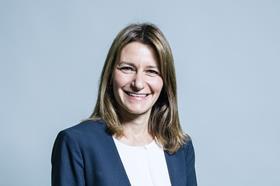The Children's Society has welcomed what it hails as a government U-turn over legal aid for vulnerable migrant children, following a five-year legal battle.

Justice minister Lucy Frazer QC MP today confirmed in a written ministerial statement that legal aid will be extended to immigration matters for unaccompanied and separated children.
Frazer said her department examined evidence presented as part of a judicial review brought by The Children's Society's and government data on funding applications.
'Based on the distinct nature of the cohort in question, and of our data regarding them, I have decided to bring these cases into the scope of legal aid to ensure access to justice', Frazer said.
The Legal Aid, Sentencing and Punishment of Offenders Act 2012 cut vast swathes of civil law from the scope of public funding. Special provision was made for children under 18 in family law proceedings to obtain legal aid but not for migrant children.
Research conducted by The Children's Society in 2015 showed that thousands of children in the UK on their own were being denied access to the law, leaving them vulnerable to exploitation, homelessness and unfair treatment. Removing legal aid for most immigration cases meant that many children, including those in local authority care, were at risk of being sexually abused or exploited because their immigration status could not be resolved.
Commenting on today's development, Matthew Reed, chief executive of The Children's Society, said: 'This is an important change in policy which will go a long way to protecting some of the most marginalised and vulnerable young people in our communities.
'Legal aid is absolutely vital for ensuring that children can access justice. For children who are subject to immigration control and who are in this country on their own, it is an absolute lifeline. The government should be commended for this significant change for children and young people.'
LASPO will be amended 'in due course following discussion across government and with external stakeholders', Frazer confirmed.
Law Society president Christina Blacklaws said it is 'as heartening as it is rare to have such good news on legal aid'. She added: 'Children who are alone or separated from their families are among the most vulnerable people in society and it is absolutely right they are supported by the state to settle their immigration status. The Children’s Society legal case has achieved a victory for common sense and compassion.'
Coram Children's Legal Centre welcomed the government's decision to work with stakeholders on the amendment. 'We also hope that the Ministry of Justice and Department for Education undertake a campaign to inform local authority frontline staff of the forthcoming changes, so that there is no delay for children in need of legal help. No child should be left without access to justice,' the centre said.



























1 Reader's comment